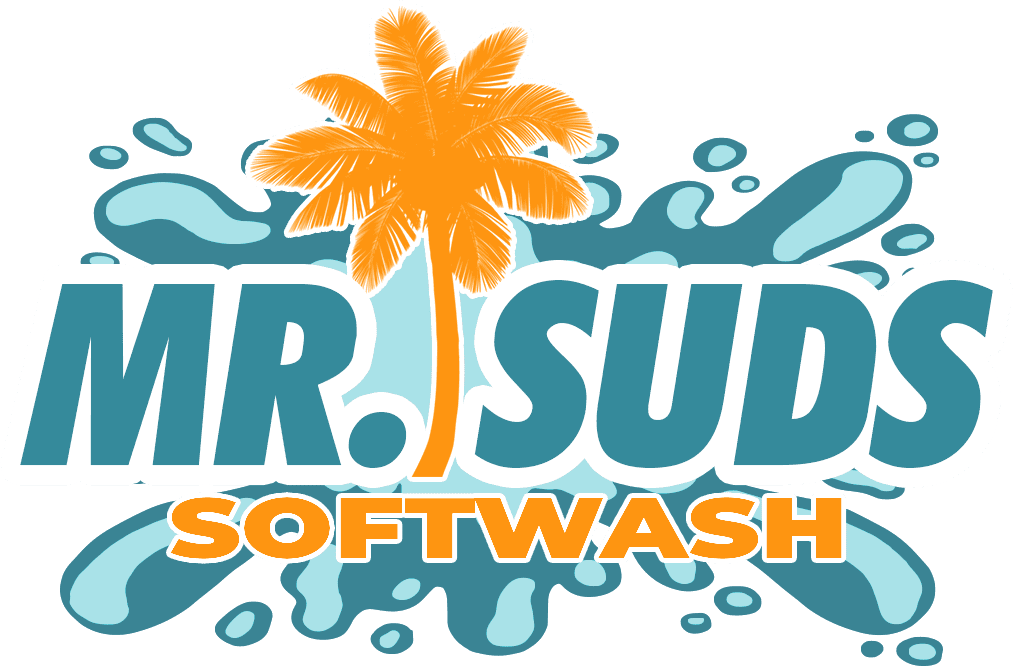How Does Soft Washing Work Compared to Pressure Washing?
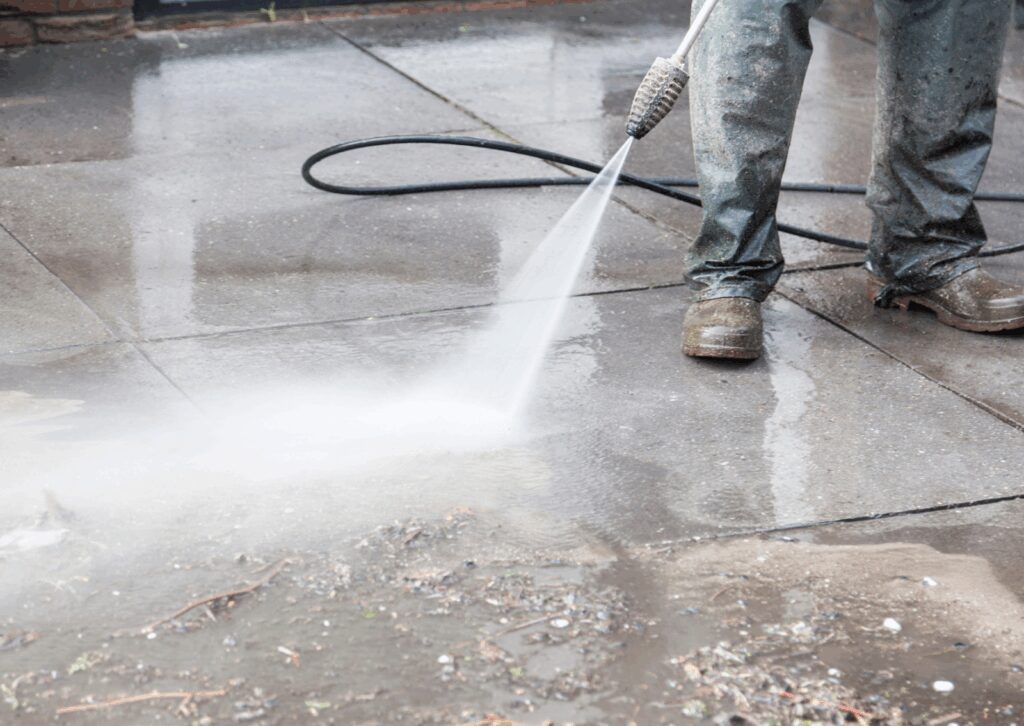
Soft washing is a low-pressure cleaning technique that uses water-based, biodegradable soft washing chemicals to clean exterior surfaces. Unlike pressure washing, which relies on high-pressure water to remove dirt and grime, soft washing depends on specifically formulated cleaning solutions to target organic matter like mold, mildew, moss, and algae. The dwell time, the period these chemicals sit on a surface, is essential for soft washing to be effective. This method gently breaks down contaminants so they can be rinsed away without damaging the material underneath.
Pressure washing is still useful in many scenarios, especially when removing stubborn oil or grime from hard surfaces like concrete or metal. However, its forceful stream can harm delicate areas such as siding, roofs, or windows. That’s why homeowners are increasingly turning to soft washing for a gentler yet highly effective alternative to maintain the integrity of their homes.
Why Are Soft-Washing Chemicals More Effective on Certain Surfaces?

Soft washing chemicals are uniquely designed to eliminate contaminants that grow and stick to surfaces over a long period. Unlike generic cleaning products, these solutions are mixed with surfactants—agents that help the chemical cling to surfaces—and penetrants that break down organic material at the root. This means they don’t just wash away surface dirt but address the source of stains and bacterial growth.
Surfaces such as asphalt shingles, tile roofs, vinyl siding, and painted wood benefit from soft washing because these materials can be damaged by high-pressure water. For example, the Asphalt Roofing Manufacturers Association recommends non-pressure or soft washing to clean roof shingles in order to avoid granule loss and extend roof life (ARMA). Soft washing ensures a deep clean while preserving the surface’s structural integrity.
What Is in a Typical Soft Washing Solution?
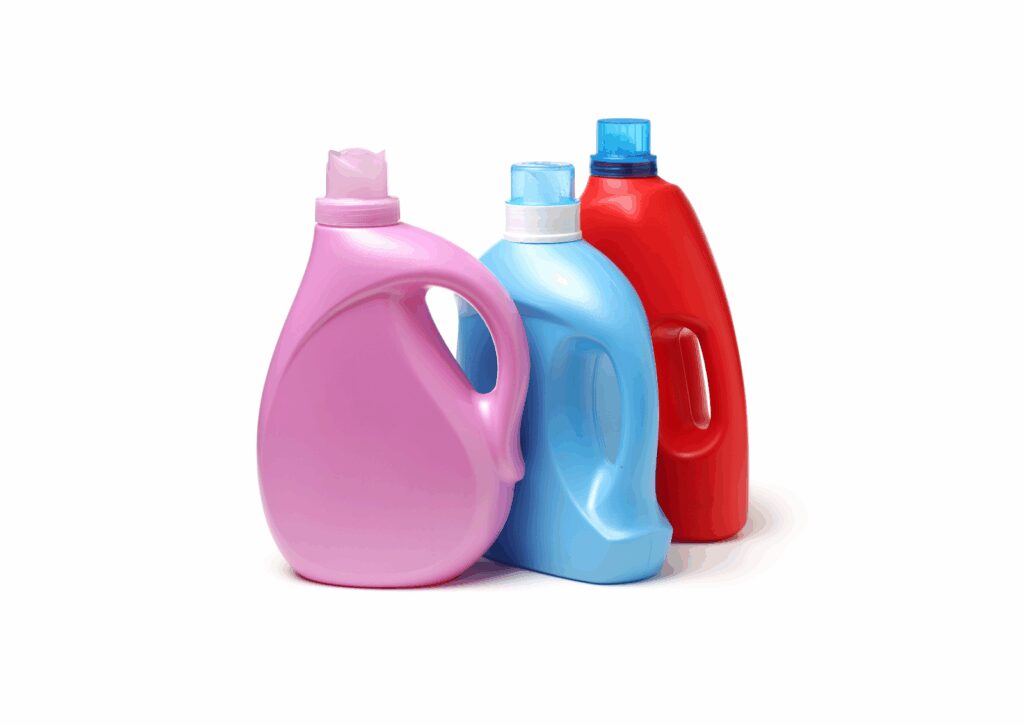
A typical soft washing solution contains three main components: a cleaning agent, a surfactant, and water. The most common cleaning agent is sodium hypochlorite, which is essentially the same as household bleach but at a higher concentration. This chemical effectively eliminates mold, mildew, algae, and bacteria on contact. It is often combined with surfactants—like dish soap or biodegradable detergents—that increase the dwell time by helping the solution stick to the surface.
The solutions are then diluted with water to reduce their intensity and sprayed onto the area being cleaned. Other additives may include sodium hydroxide for grease and oil removal on tougher surfaces like dumpster pads or concrete, and rust or iron removal agents for specialized treatments. These cleaning solutions are specifically formulated depending on the surface and type of grime being treated.
Why Is Sodium Hypochlorite a Key Ingredient in Soft Washing?
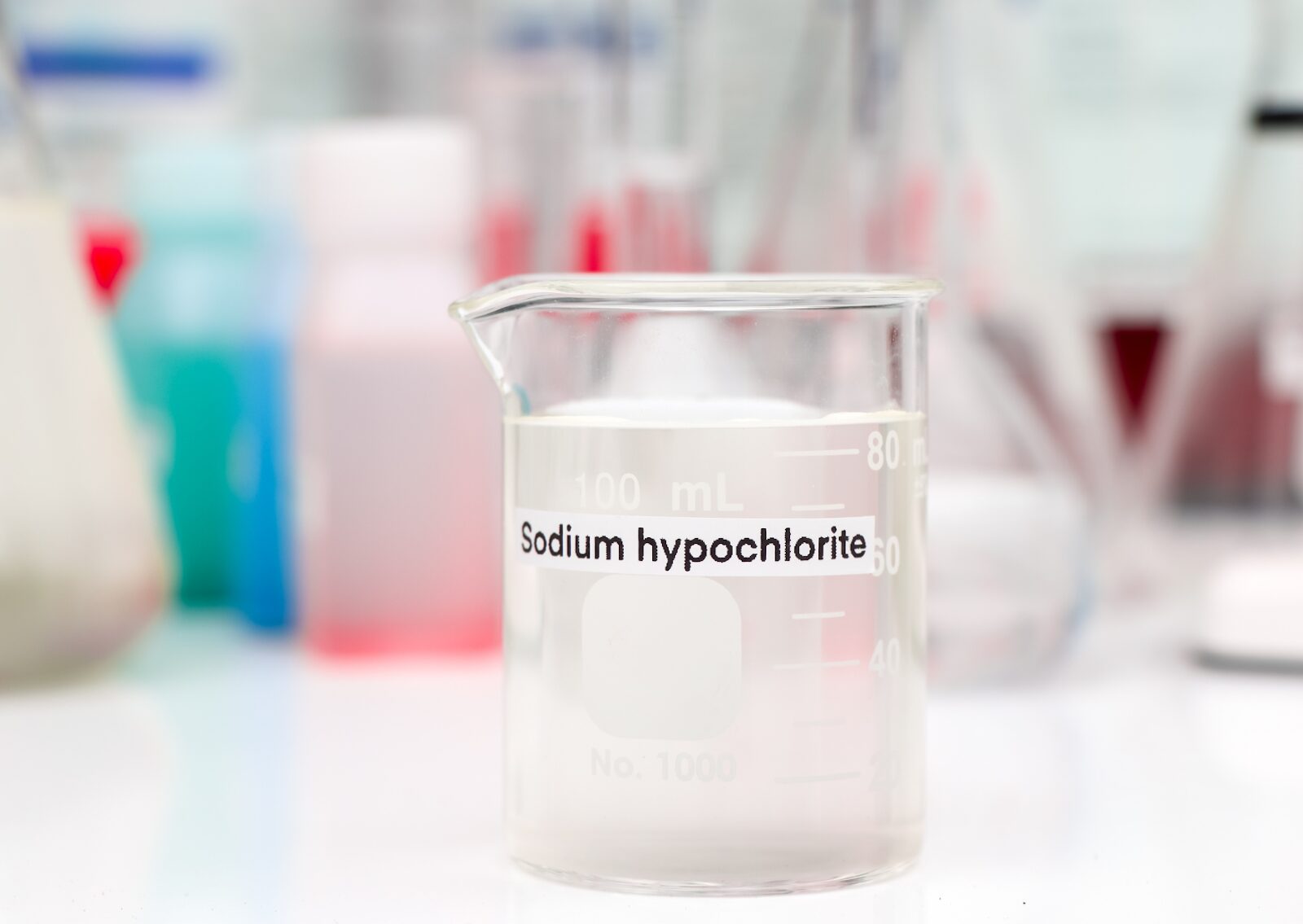
Sodium hypochlorite is the powerhouse chemical in many soft washing applications. It has strong oxidizing properties, making it incredibly effective at killing mold, mildew, and bacteria. According to the Centers for Disease Control and Prevention (CDC), sodium hypochlorite solutions are used in disinfecting and sanitation processes due to their ability to eliminate a wide range of pathogens (“Chemical Disinfectants”).
In soft washing, sodium hypochlorite not only breaks down organic matter but also deodorizes and eliminates foul smells caused by microbial growth. It is especially effective on roofs and siding where black streaks—often caused by Gloeocapsa magma algae—tend to accumulate. When used correctly, this chemical can drastically enhance the appearance and hygiene of your home’s exterior without the need for abrasive pressure.
Can Dish Soap or Household Products Be Used in Soft Washing?
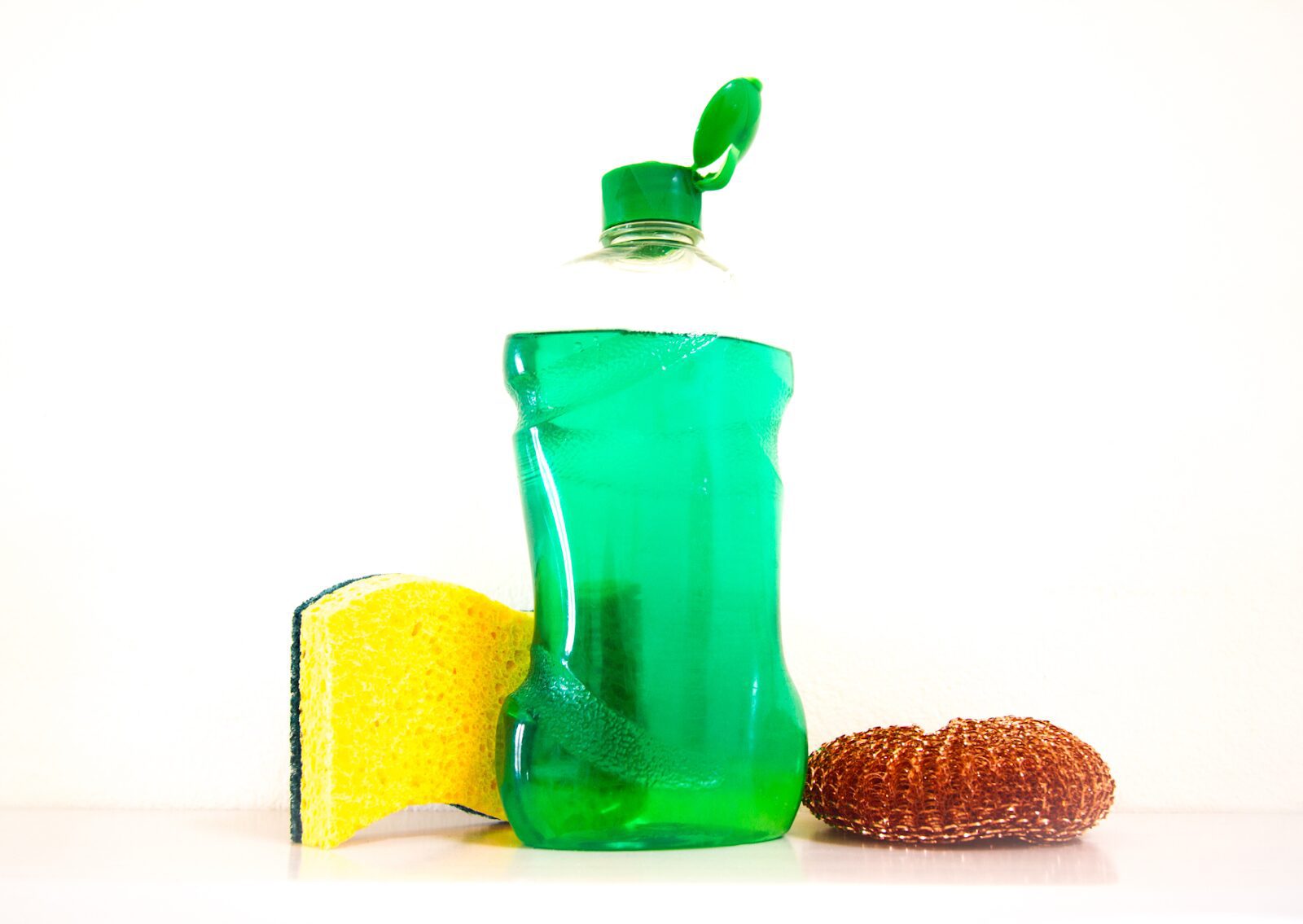
Dish soap and other household detergents can serve as surfactants in soft washing solutions, helping to increase adhesion and control the flow of the mixture on vertical or porous surfaces. While they aren’t powerful cleaners on their own, when combined with sodium hypochlorite or other active chemicals, they boost the overall effectiveness of the solution.
However, it’s crucial to use soaps that are biodegradable and safe for the environment. Many professional-grade products used in soft washing are engineered to be eco-friendly and safe around plants and pets, reducing runoff risk. DIYers attempting to replicate soft washing should avoid mixing random chemicals, as improper combinations can result in harmful fumes or ineffective cleaning.
What Types of Surfaces and Stains Respond Best to Soft Washing?
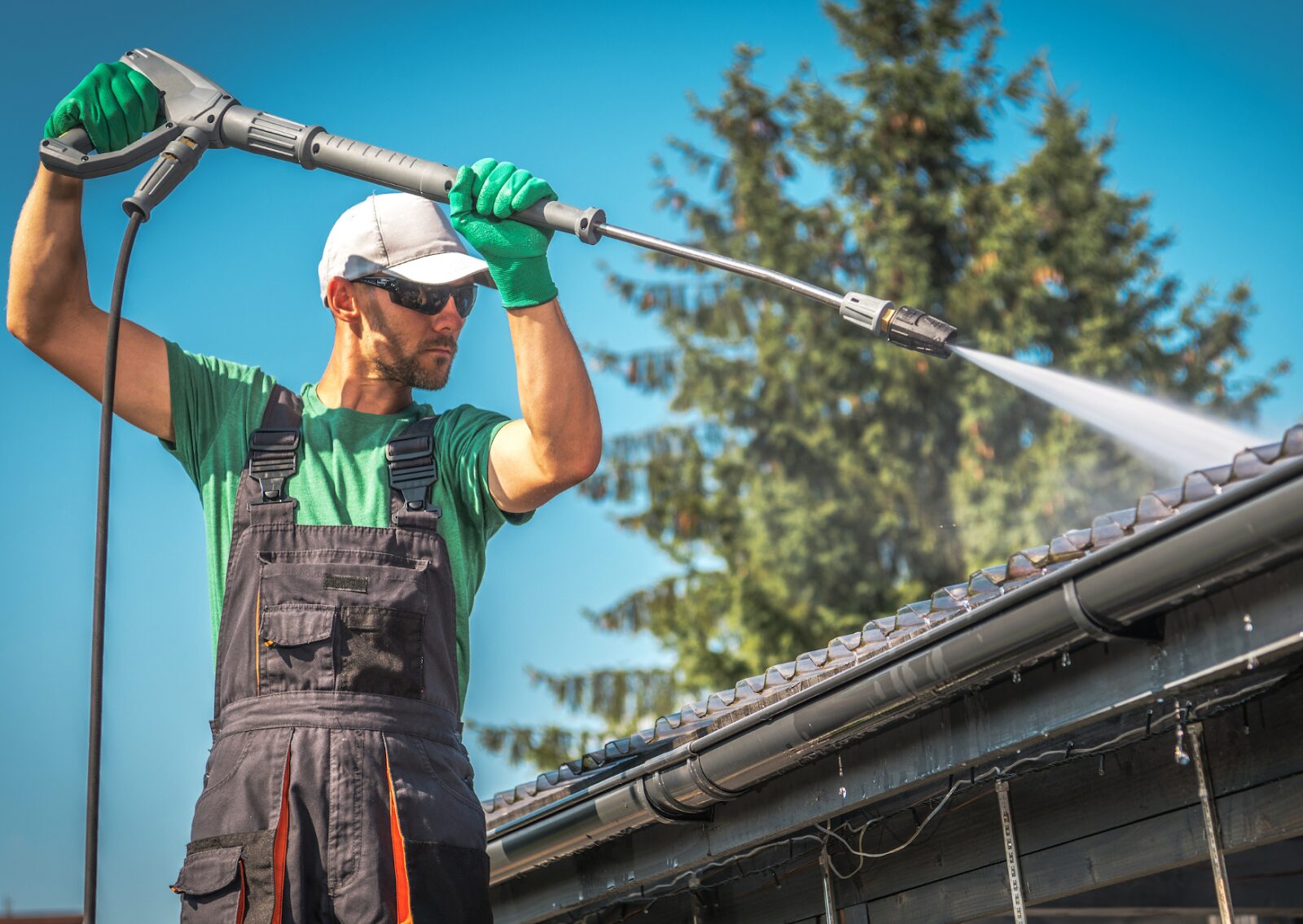
Soft washing is especially effective for removing stains and buildup from delicate or porous surfaces, including:
- Asphalt roofs
- Painted wood siding
- Vinyl siding
- Stucco finishes
- Stone and grout
- Windows and other streak-sensitive surfaces
This method is ideal for cleaning:
- Mold, mildew, and algae that cling to surfaces over a long period
- Moss and bacteria that thrive in shaded, moist areas
- Dirt and grime embedded in textured materials like tile or shingles
- Stubborn stains that resist removal with standard rinsing methods
Thanks to its low-pressure application and effective chemical solutions, soft washing treats these surfaces thoroughly without causing damage. Proper dwell time ensures deep penetration, making it safe and effective for a wide range of exterior cleaning needs.
How Does Soft Washing Handle Contaminants Like Oil, Rust, and Algae?
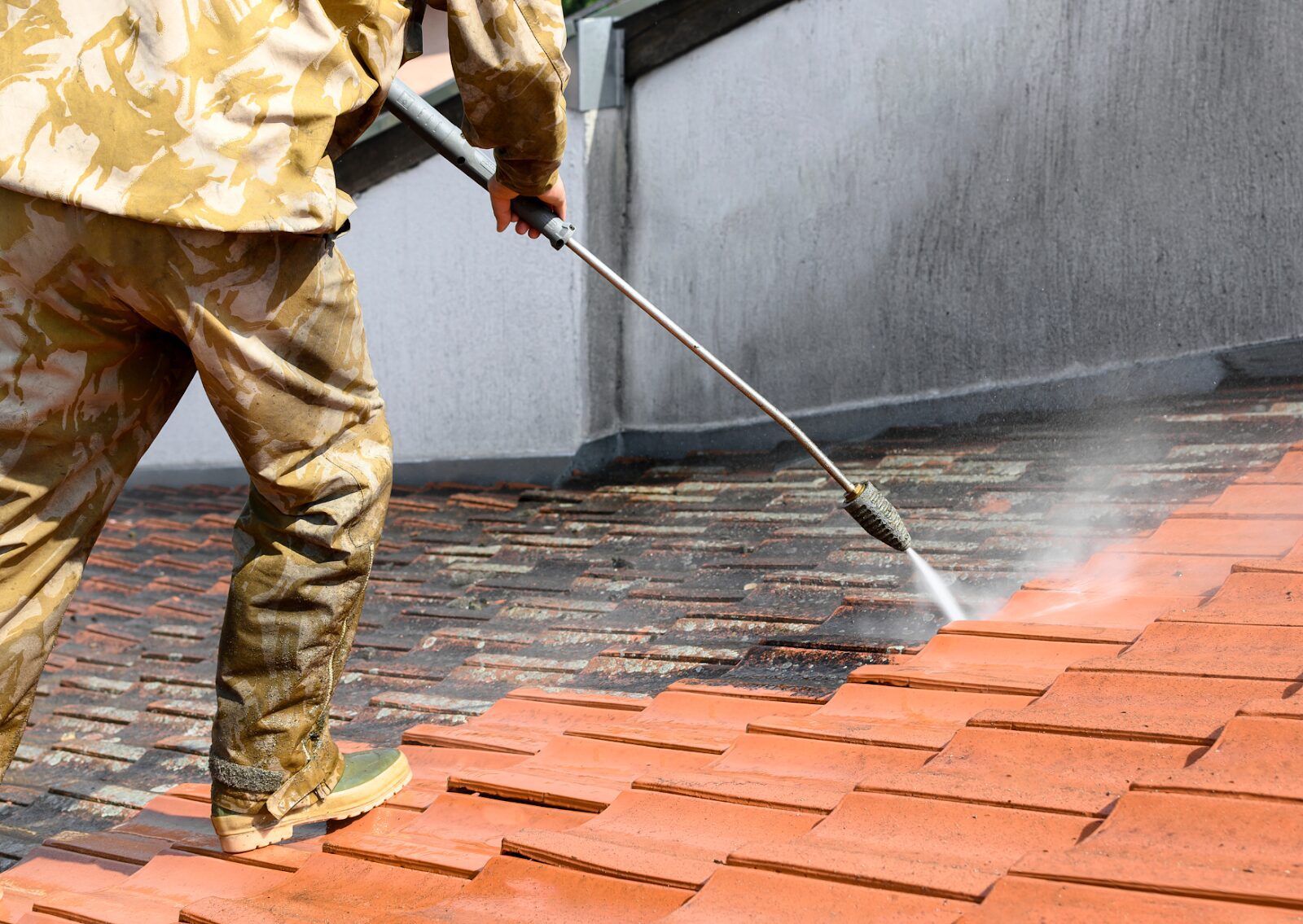
Soft washing can be adapted to remove a wide range of contaminants, from rust stains to stubborn oil spots. Sodium hydroxide is a common additive used to break down grease and oil, making it ideal for cleaning dumpster pads, garage floors, and other surfaces exposed to petroleum-based grime. For rust removal, specialty rust removers are added to the solution.
Algae and mold are common problems on the exterior of homes in humid climates, especially on roofs and siding. Soft washing chemicals not only remove these organisms but also kill their spores, helping prevent rapid regrowth. This creates a longer-lasting clean than simply blasting off visible growth with pressure. Moreover, the solution can be sprayed evenly and allowed to dwell, ensuring full saturation of contaminants before being rinsed away.
What Is the Environmental and Health Impact of Soft Washing Chemicals?
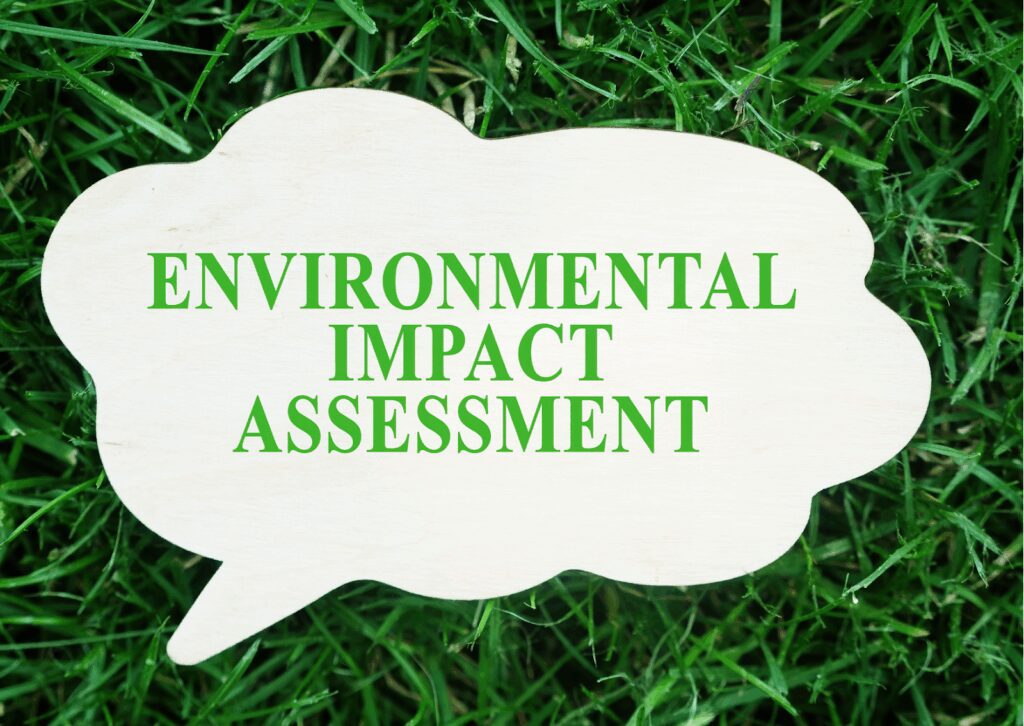
Environmental and safety concerns are common when it comes to chemical cleaning, but most soft washing professionals use biodegradable products that minimize risk to humans and ecosystems. Sodium hypochlorite, while potent, breaks down quickly into salt and water when exposed to sunlight and oxygen. Still, it must be handled properly.
When used incorrectly, chemicals can cause irritation or release harmful fumes. This is why personal protective equipment (PPE) and proper ventilation are essential when preparing or applying soft washing solutions. Reputable companies like Mr. Suds Softwash follow Environmental Protection Agency (EPA) guidelines for chemical application and disposal to ensure safe outcomes (“Pesticide Use”).
How Do Professionals Mix and Apply Soft Washing Chemicals Safely?
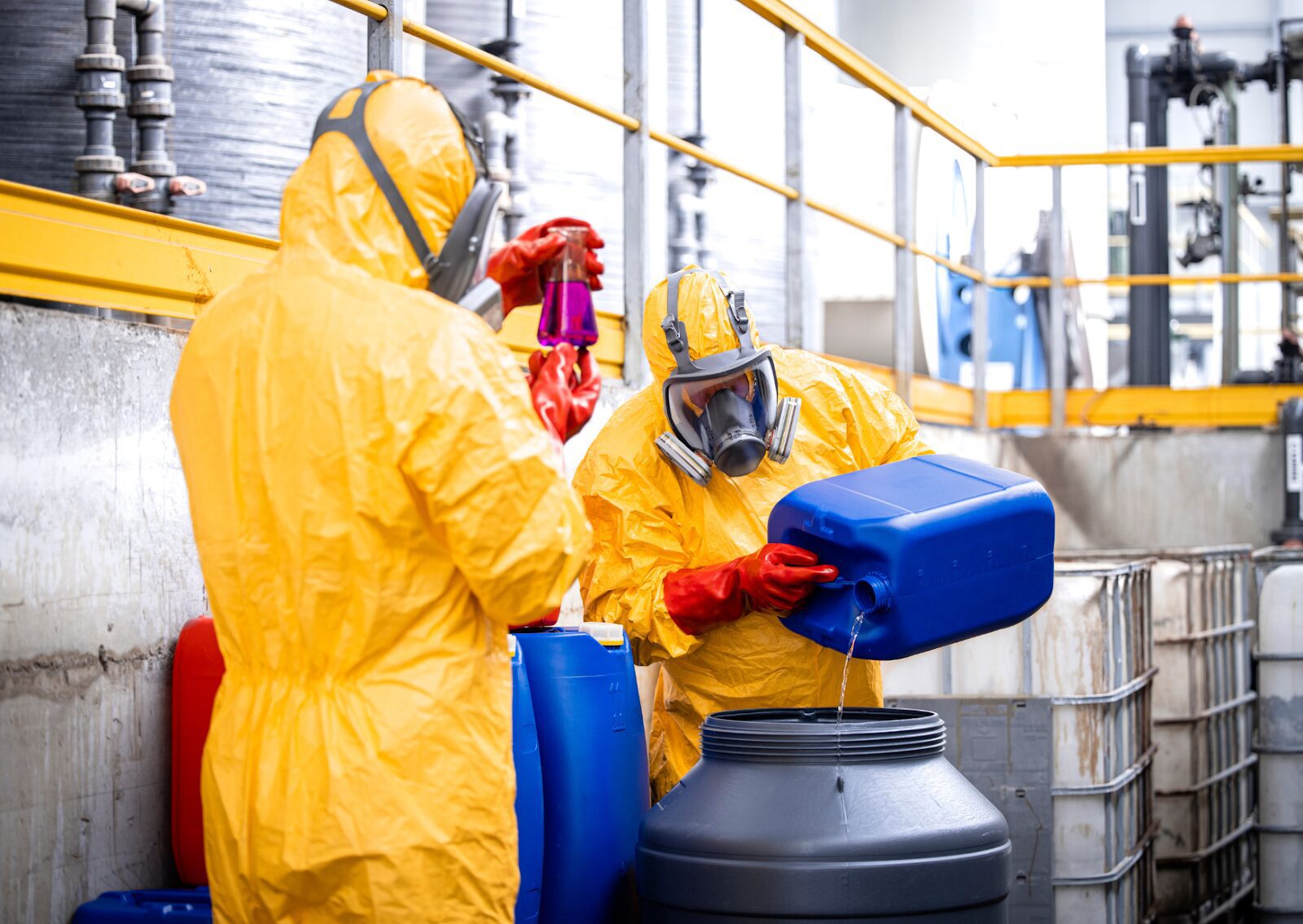
Mixing soft washing solutions involves careful dilution and understanding of chemical ratios based on the cleaning task. Professionals use metering systems and proportioning equipment that allow them to control how much sodium hypochlorite, surfactant, and water is sprayed. The solution is then sprayed evenly over the surface and allowed to dwell for several minutes.
After sufficient dwell time, the surface is rinsed with clean water, removing both the cleaning solution and the broken-down contaminants. Proper training ensures that the chemicals don’t affect landscaping, metal fixtures, or sensitive building materials. That’s why working with a trained professional is safer and more effective than attempting a DIY mix.
When Should You Hire a Professional for Soft Washing?

Soft washing may seem simple, but getting the chemical balance and technique right requires experience and equipment. If you’re dealing with large surfaces like roofs, siding, or concrete driveways, or trying to remove embedded grime, hiring a professional service like Mr. Suds Softwash ensures the job is done safely and effectively.
Professionals can assess the surface type, stain severity, and level of organic contamination before choosing or mixing the appropriate solution. They also carry the right equipment for precise application, efficient dwell time, and proper rinsing. This eliminates the risk of damaging surfaces, overusing chemicals, or leaving behind residue.
Want a Safer, Cleaner Home Exterior? Contact Mr. Suds Softwash Today.

If your home is showing signs of mildew, mold, algae, or stubborn grime, don’t risk damage with high pressure or store-bought solutions. Soft washing is the safe, science-backed alternative to pressure washing, and Mr. Suds Softwash has the tools, training, and eco-friendly chemicals to do it right.
Serving the greater Charleston area, Mr. Suds Softwash specializes in soft washing roofs, siding, windows, and other sensitive surfaces. Their team uses only professional-grade cleaning solutions that are specifically formulated for long-term protection. Whether you’re dealing with bacteria buildup on your siding, rust on your patio, or stains on your dumpster pads, they’ll clean it with care and precision.
Get in touch today and let the pros eliminate years of dirt, organic matter, and contaminants without compromising your property.
Final Thoughts
Soft washing has revolutionized the way we clean homes by replacing brute force with chemical precision. Using soft washing chemicals like sodium hypochlorite combined with surfactants and extended dwell times, this method achieves deep, long-lasting cleanliness for a wide variety of surfaces. Unlike pressure washing, it treats the root cause of stains and buildup without damaging delicate materials.
Understanding what goes into a soft washing solution and how it works can help homeowners make informed decisions about their exterior cleaning needs. Whether you’re considering a DIY approach or hiring professionals, the key is using the right chemicals, applying them safely, and following industry best practices.
Works Cited
Asphalt Roofing Manufacturers Association. “Technical Bulletin: Algae Discoloration of Roof Shingles.” ARMA, https://www.asphaltroofing.org/algae-discoloration-of-roof-shingles/.
Centers for Disease Control and Prevention. “Chemical Disinfectants.” CDC, 16 Sept. 2016, https://www.cdc.gov/infectioncontrol/guidelines/disinfection/disinfection-methods/chemical.html.
Environmental Protection Agency. “Pesticide Use and Water Quality.” EPA, https://www.epa.gov/nutrient-policy-data/pesticide-use-and-water-quality.
Frequently Asked Questions
1. Is soft washing safe for all types of home exteriors?
Yes, soft washing is safe for most home exteriors, especially delicate surfaces like vinyl siding, painted wood, stucco, and asphalt roofs. Unlike pressure washing, which can damage these materials, soft washing uses low pressure and specifically formulated cleaning solutions to clean gently and thoroughly.
2. What’s the difference between soft washing and pressure washing?
Soft washing uses low-pressure water combined with chemicals like sodium hypochlorite to eliminate mold, mildew, and algae. Pressure washing relies solely on high-pressure water to remove dirt and grime, which can be harsh on certain surfaces. Each method has its place, but soft washing is better suited for surfaces that need a gentle touch.
3. How long do soft washing results last?
Soft washing typically provides long-lasting results because it eliminates the root causes of staining, such as organic matter and bacterial growth. In many cases, treated areas stay clean for a year or more, depending on environmental factors and the type of surface.
4. Can I mix soft washing chemicals myself for DIY cleaning?
While it’s technically possible to mix basic ingredients like bleach and dish soap, it’s not recommended without proper training. Incorrect chemical ratios or mixing incompatible solutions can be hazardous. For best results and safety, it’s advisable to hire professionals like those at Mr. Suds Softwash.
5. Are soft washing chemicals harmful to plants or pets?
When applied properly and diluted correctly, most soft washing chemicals used by professionals are biodegradable and safe for landscaping and pets. Crews typically pre-wet plants and rinse them again after application to protect them. Always work with a licensed and insured company that follows environmental safety protocols.
